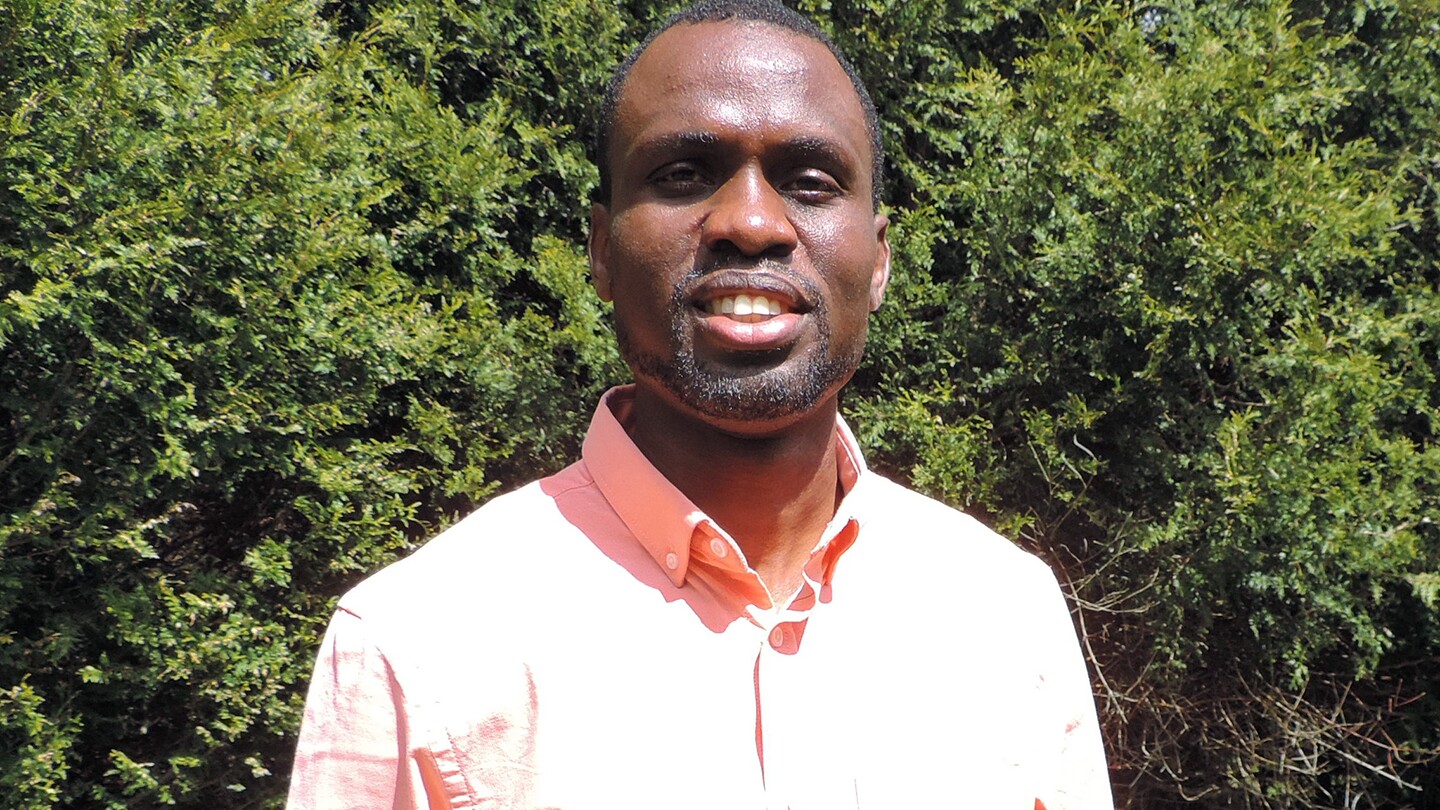Chukwudi Chukwudozie came to the United States in 2008 from his native Nigeria to pursue dual master’s degrees in petroleum engineering and applied mathematics at Louisiana State University. The trip was significant for several reasons.
“It was my first trip to America, and actually my first time on an airplane,” said Chukwudozie, who goes by “Chuks”. “So many big changes for a short amount of time.”
He didn’t sleep during either leg of his flight — which went from Abuja to Amsterdam to Memphis — staring out the window as night turned into day and soaking up every second. “When we landed in America, it felt like we were on a whole different planet,” he recalls. “I wish I could go back to that amazing feeling when I got to experience what I’d only seen in the movies until that point.”
The seeds of his journey into science were planted during his upbringing. Chukwudozie’s father, a building engineer, encouraged him and his five siblings to study math and science from an early age.
As a science student in Nigeria, you have two choices: engineering or medicine. I had no interest in medicine, but instead always knew I wanted to work with computation and use technology to solve equations.
“Our dad would sit down at the table with us and teach us mathematics, physics and chemistry,” he said. “He instilled in all of us an interest in science and engineering.”
Those early life lessons aligned well with his own interests.
“As a science student in Nigeria, you have two choices: engineering or medicine,” Chukwudozie continued. “I had no interest in medicine, but instead always knew I wanted to work with computation and use technology to solve equations.”
Initially, he followed in his father’s footsteps, enrolling as a civil-engineering major at the Federal University of Technology Minna in Nigeria. However, during his sophomore year, as he became more interested in Nigeria’s thriving oil and gas industry, he pivoted to chemical engineering.
“In Nigeria, most of what sustains us is from oil and gas, so I wanted to be the first chemical engineer in my family,” he said. “I was really interested in the downstream side of the petroleum industry. I’d see the flares from the refineries and wanted to understand how they worked. And I love chemistry.”
After completing his PhD in petroleum engineering at LSU and a postdoctoral fellowship program at the Department of Civil Engineering and Engineering Mechanics at Columbia University, Chukwudozie shifted gears yet again.
“Machine learning was picking up steam, and I wanted to see how I could make a contribution to this emerging field through my background in applied math,” he said. “I never like to be idle. So after I finished my doctoral defense and had a few months until graduation, I stayed busy writing code and studying machine learning on my own out of sheer curiosity because I needed something to keep me thinking and learning.”
A few colleagues in the petroleum-engineering industry encouraged him to keep writing code, which he never published but ultimately shared with a professor at LSU for a research project. His students are using Chukwudozie’s code — which implements a finite-element solution of multiphysics fluid flow, heat, and solid deformation in underground formations — to run on high-performance computers.
Around that time, a recruiter contacted him about an applied-scientist opening at Amazon. He was intrigued by the opportunity.
“It seemed to me like Amazon was the only company hugely invested in machine learning to solve business problems,” Chukwudozie said. “I looked up the LinkedIn profiles of a few applied scientists at Amazon and quickly related to a few of them who, like me, do not have a traditional computer science background. I could see myself fitting into that environment.”
Though the shift from petroleum engineering to machine learning might seem like a major detour for him, Chukwudozie is quick to note that the two disciplines share the same fundamentals — mathematics.
“My graduate programs focused heavily on coding and solving problems through applied-math equations, essentially the foundation of machine learning,” he explained.
In June 2019, Chukwudozie joined the Buyer Risk Prevention (BRP) team at Amazon, which uses machine learning algorithms to help prevent fraud in Amazon stores. He has also collaborated with Amazon teams on both the buyer and seller sides in Europe and the United States.
He appreciates what he’s learned from his colleagues, who include PhDs spanning a variety of scientific disciplines — from biology and chemistry to geophysics and mechanical engineering.
“The BRP team has a large collection of applied scientists from a range of backgrounds,” he said. “Since I didn’t have any practical machine learning experience at the time, it was a great landing spot for me to build a foundation of knowledge. I did a lot of presenting, a lot of asking, and a lot of listening.”
In 2020, Chukwudozie presented at the company’s annual, internal Amazon Machine Learning Conference (AMLC) and plans to do so again this year. He’s motivated by a passion to continue his learning journey and share his knowledge and story with scientists from similar backgrounds.
In December 2021, Chukwudozie took on a new challenge, this time with a role focused on improving search relevance for fashion items on the Amazon Store — from jackets to jeans to backpacks — based on time of year. Specifically, he’s working on a seasonal model to help customers find products that are in season at the time of their requests.
“Because if we present a customer with a winter item in the summer, for example, then there is a very low likelihood of them being satisfied with the item,” he explained. “But when we present a more relevant item, then we see more-satisfied customers.”
Building safe, seamless shopping experiences gives Chukwudozie a sense of fulfillment.
“Seeing the impact of my work on customers — from preventing fraud to helping shoppers find the best, most relevant products they’re looking for — that brings me huge joy,” he said. “One of the things that attracted me to Amazon is the fact that the problems we help solve have a global and almost immediate impact. You get to see the results of your job in real time.”





















